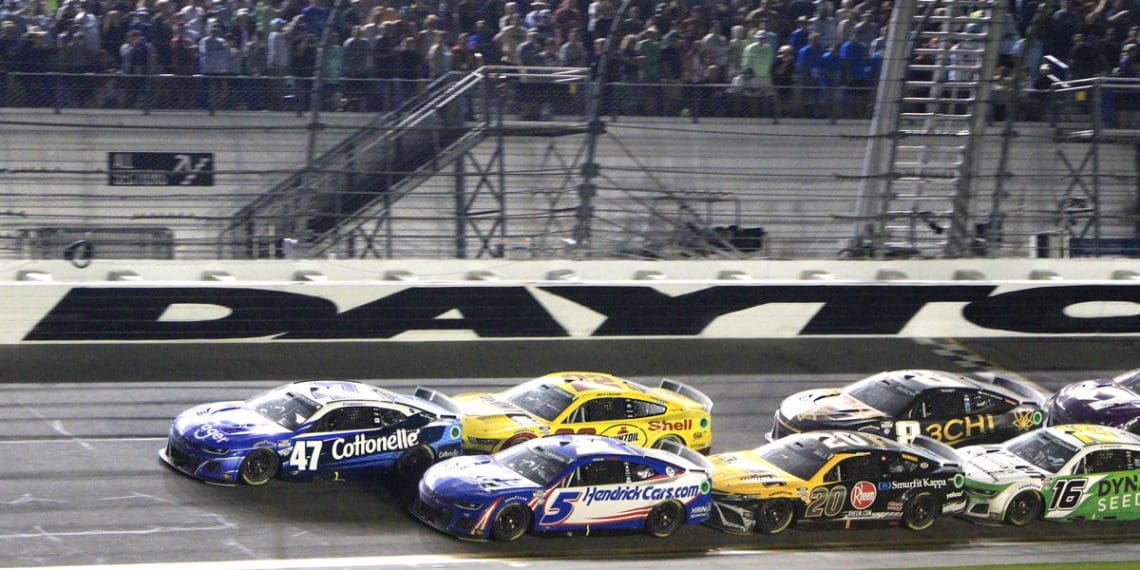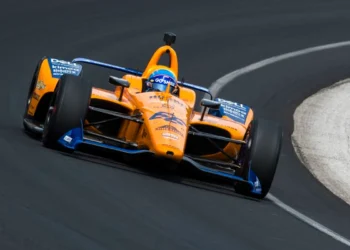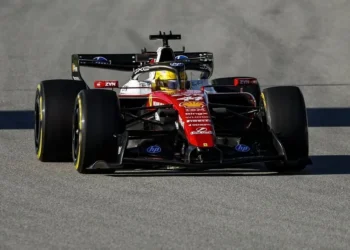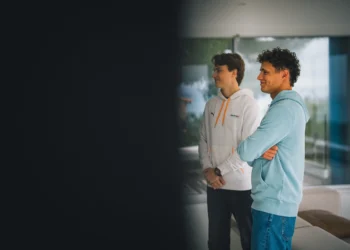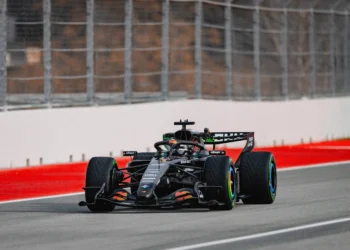For decades, NASCAR was a dominant force in American sports culture. It had record-breaking TV ratings, A-list celebrities in the stands, Hollywood crossovers, and a fan base that stretched far beyond the Southern roots of stock car racing. But in recent years, as the NBA, NFL, and Formula 1 surged ahead with digital innovations and mainstream appeal, NASCAR found itself struggling to keep up.
Now, that may be about to change.
With a new partnership in immersive broadcasting, a blockbuster Hollywood name headlining the Daytona 500, and strategic cultural collaborations, NASCAR appears to be plotting a calculated comeback—one that could reignite its status as a mainstream American sports powerhouse.
Cosm’s Shared-Reality Venues: NASCAR Finally Goes High-Tech
The biggest move NASCAR is making? Bringing its races into the future of entertainment.
For the first time ever, a NASCAR event—the 2025 Daytona 500—will be broadcast in Cosm’s next-generation, shared-reality venues in Los Angeles and Dallas.
What does this mean for fans?
Cosm offers an immersive, 360-degree experience, allowing fans to feel the speed, intensity, and atmosphere of Daytona without leaving their city. It’s an innovative step that rivals the NFL’s augmented reality broadcasts and the NBA’s virtual reality replays—finally giving NASCAR a tech-forward way to engage younger, digitally-savvy audiences.
By embracing this futuristic stadium-like viewing environment, NASCAR is breaking free from its traditional television broadcast model—and that could be a game-changer in attracting new, younger fans.
Captain America Takes the Track: Anthony Mackie’s Star Power Brings NASCAR Back to Hollywood
But NASCAR isn’t just relying on high-tech innovations to win back mainstream relevance—it’s also turning to Hollywood to rekindle its star power.
The 2025 Daytona 500 Grand Marshal will be none other than Anthony Mackie, Marvel’s current Captain America.
The announcement wasn’t just any press release—it was a cinematic social media moment, featuring Captain America’s iconic shield smashing into the Daytona 500 trophy, with the caption: “See you at the track, Cap.”
This move isn’t just a celebrity stunt—it’s part of a long-running NASCAR tradition of enlisting Hollywood’s biggest names. In 2014, Chris Evans, the original Captain America, was the Grand Marshal ahead of Captain America: The Winter Soldier. Other past names include Matthew McConaughey, Charlize Theron, and Tom Cruise—but in recent years, NASCAR’s pull among A-listers has weakened.
By bringing Mackie into the fold, NASCAR is signaling that it wants back in on the mainstream sports-and-entertainment crossover market—a space where the NBA and NFL have dominated.
Rebuilding NASCAR’s Cultural Relevance—One Bold Move at a Time
NASCAR isn’t stopping at immersive experiences and Hollywood star power. The sport has also made strategic moves to reconnect with diverse communities—a key factor in broadening its fan base.
In October 2024, NASCAR announced a collaboration with LegacyHistoryPride, a brand that celebrates Historically Black Colleges and Universities (HBCUs). The result?
A custom-designed, co-branded NASCAR “pit crew jersey” for 12 different HBCUs, including Howard University, Morehouse College, and Grambling State University.
This initiative is more than just merchandise—it’s NASCAR acknowledging the need to evolve and engage with audiences that have historically been underrepresented in stock car racing.
With Formula 1 growing its American presence, the NFL expanding its global reach, and the NBA continuing to dominate pop culture, NASCAR needs bold, culturally relevant moves to remain competitive—and this HBCU partnership is one step in the right direction.
Will NASCAR’s Comeback Work?
For years, NASCAR has struggled to keep pace with changing fan expectations. The days of simple race-day broadcasts and traditional sponsorships are over.
If NASCAR wants to return to mainstream dominance, it needs to evolve—and this latest wave of innovations proves the sport is finally making serious moves.
- Cosm’s immersive venues modernize the NASCAR viewing experience.
- Anthony Mackie’s involvement reignites its Hollywood appeal.
- The HBCU partnership expands its cultural footprint.
Now, the big question remains: Will these efforts be enough to drive NASCAR back into the fast lane of American sports culture?
One thing is certain—the Daytona 500 will be the first big test of NASCAR’s new era.
And the world will be watching.

